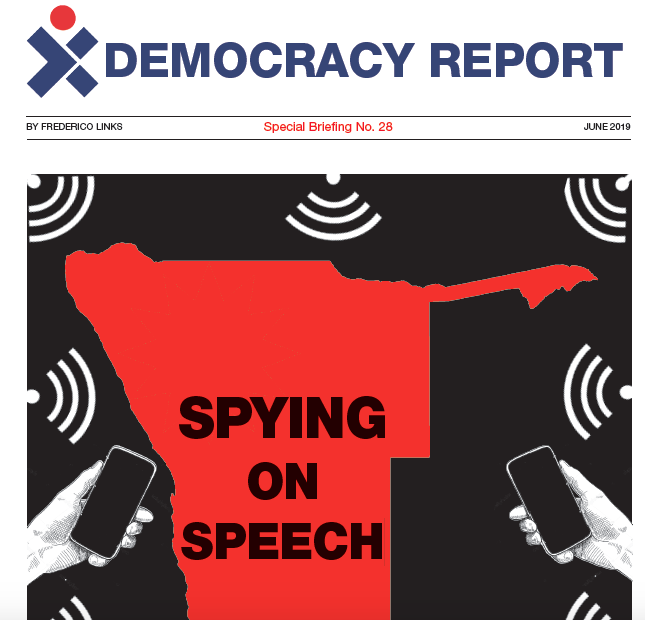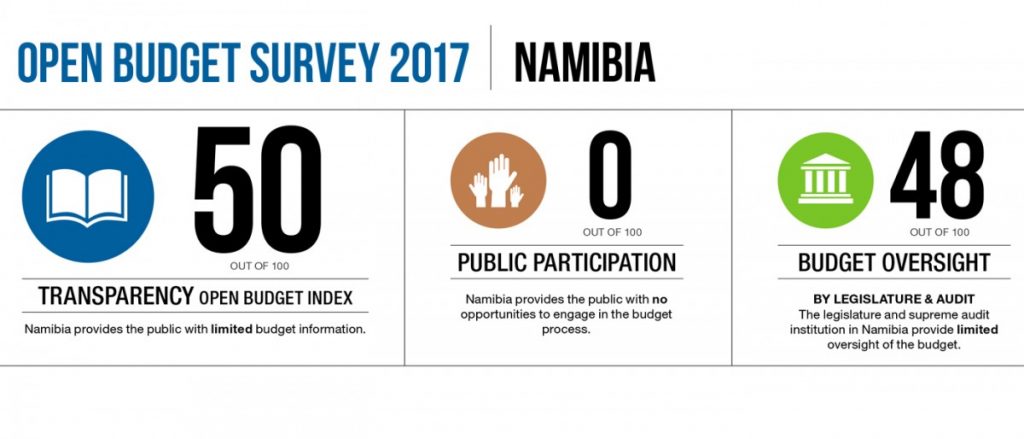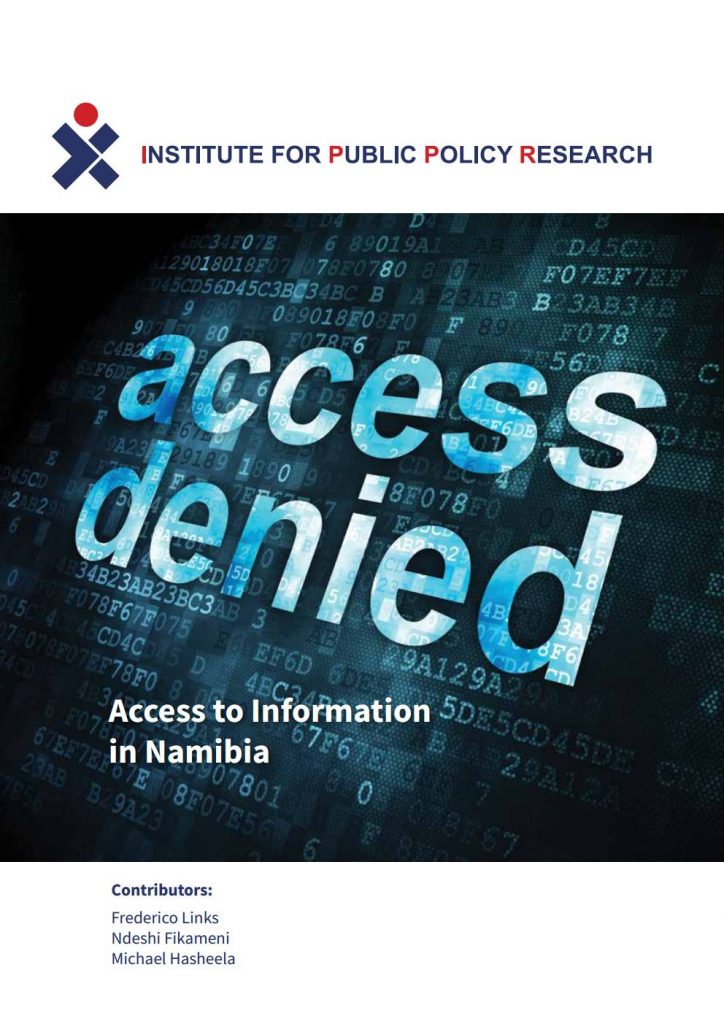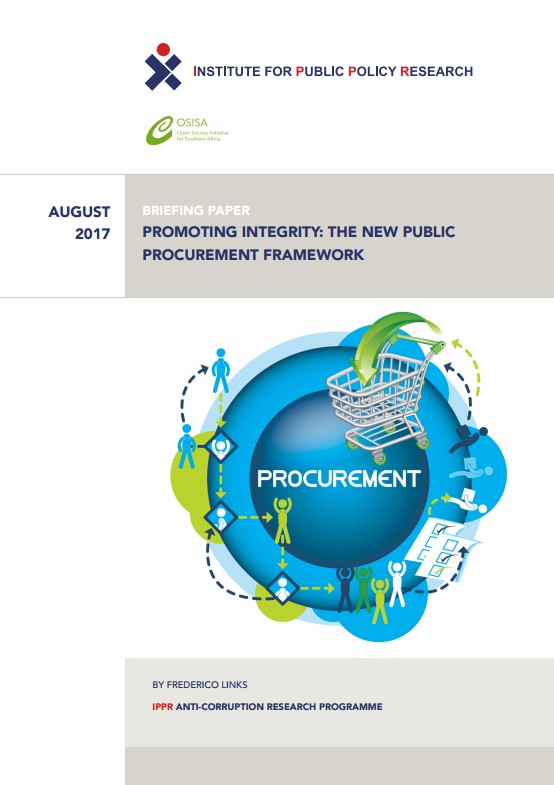Public Procurement Tracker Namibia

Recent statements by senior government figures indicate that the problems that have been experienced with the implementation of the Public Procurement Act since 2017 can no longer simply be described as ‘growing pains’. The latest edition of our Procurement Tracker bulletin examines these recent pronouncements on the faults and gaps in the present system as […]
Procurement remains murky
Access to information on government procurement activities remains largely non-transparent despite repeated claims that the new public procurement mechanisms are meant to enhance accountability and transparency.
Spying on Speech

This paper examines Namibia’s approach to surveillance – in particular whether there is adequate legal oversight regarding Namibia’s intelligence services. In addition, there is a concern that Namibia’s spying services are operating in a legal vacuum as a crucial part of the Communications Act – dealing with surveillance – has not been brought into force. […]
Public procurement lacks transparency
The latest issue of the Procurement Tracker, an quarterly initiative launched in 2018 by the Institute of Public Policy Research (IPPR) to monitor and track developments and issues within the Namibian public procurement sphere, states that successive reviews of the procurement systems in place and the body managing the processes “suggest a system in trouble and even in turmoil.”
Corruption perception hurting Namibia-IPPR
Perceptions that Namibian leaders are corrupt are hurting the country’s development trajectory, the Institute for Public Policy Research(IPPR) has said.
In 2017, the Transparency International (TI)’s Corruption Perception Index (CPI) ranked Namibia as the fourth least corrupt country in Africa. This ranking was however questioned by Namibia University of Science and Technology (NUST) senior lecturer, Dr. Johan Coetzee during a presentation and panel discussion held by IPPR this week.
Coetzee during his presentation on the role of the private sector in tackling corruption noted that corruption is a social ill and Namibia fails when it comes to it. Over the past 10 years the country has only managed to reach an average of 4.8 out of 10 when it comes to corruption transparency.
Katjavivi Fails Assets Transparency Test … As Lawmakers Disregard Rules
NATIONAL Assembly Speaker Peter Katjavivi has failed to transparently manage the assets register of parliamentarians despite promising to make it publicly accessible three years ago.
An updated register of MPs’ assets has not been publicly available since 2009, and Katjavivi blames parliamentary bureaucracy and budget cuts for not making MPs’ assets declarations public.
Assets and interest declarations are considered effective tools to fight and prevent corruption, detect illicit enrichment and conflict of interest, in both the public and private sectors.
The Open Budget Index 2017: Namibia’s Performance

Namibia moved up slightly in the new Open Budget Index. Read more here
Access Denied

We asked 105 institutions for information – and only a minority answered.
Promoting Integrity in Public Procurement

Government has begun implementing a new Procurement system. This paper looks at the international framework that gave to that system and provides an analysis.
The good and bad of the Whistleblower Protection Bill

The new bill has potential for good — we detail the issues that need to be fixed first
